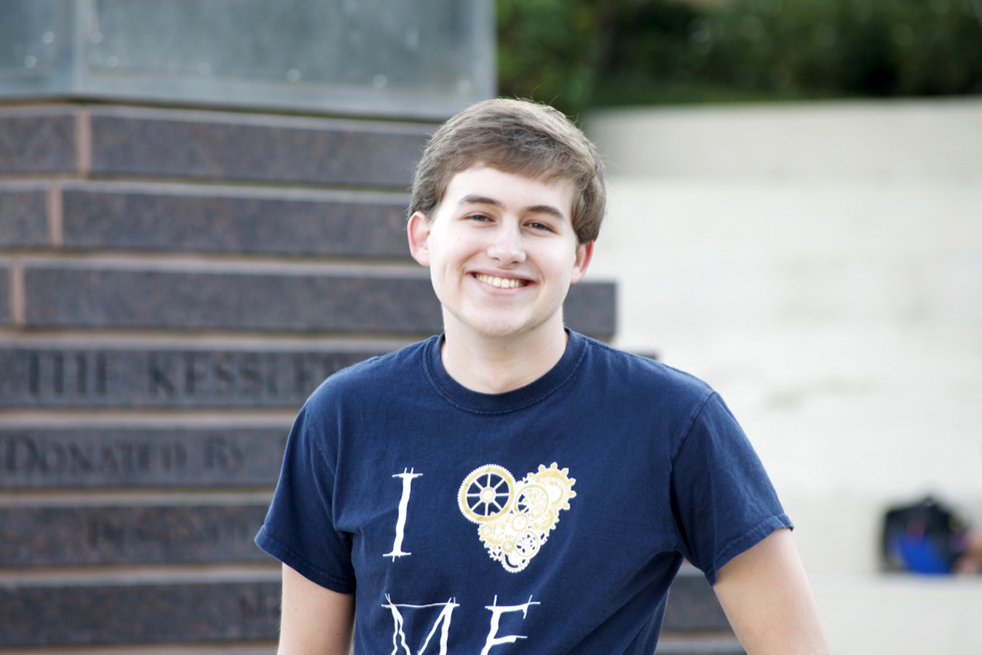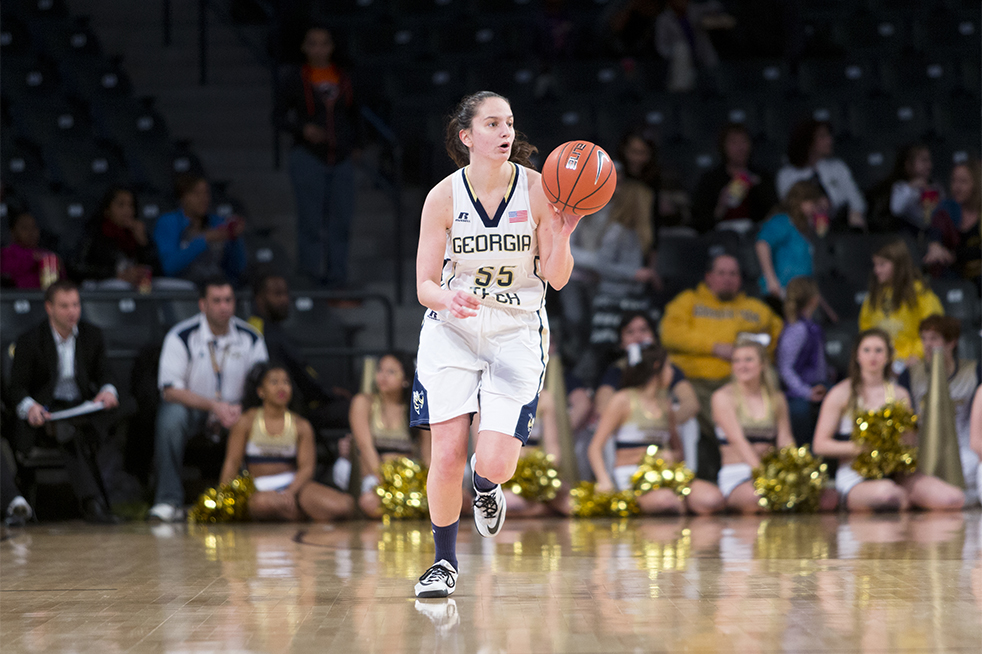
Math enthusiast, entrepreneur, educator, advocate for minority groups and traveler can all be used to describe Michole Washington, MATH ‘16, who graduated last year as the ninth African American woman to graduate with an Applied Mathematics degree from Georgia Tech.
Mathematics has always been important to Washington, even as a little girl. Since fourth grade, she recalls spending her summer vacations in the library teaching herself the material for the next grade out of math textbooks. However, loving math did not equate to it always being easy.
“I was born with the curiosity of learning math, not just born knowing it,” said Washington.
Yet, she did not believe she could pursue mathematics as a career and first set her sights on becoming a veterinarian. In the end, mathematics drew her back in and with the help of teachers and mentors, she decided to become a math major.
The idea of pursuing higher education seemed to be only a dream at the time. She had a humble beginning, raised on the south side of Atlanta by a single mother. As a first generation college student, Washington did not know the process of applying to college. But with the help of a teacher, she took on the challenge of navigating the application process. Washington noted that “Georgia Tech was my reach school. I didn’t think I would get in.”
Fate, though, had other ideas, as Washington received an acceptance letter from Tech on her first try. Then, the only remaining barrier became how to fund her education. This resolved itself when Washington received the G. Wayne Clough Scholarship, awarding her a full ride to Tech.
As it is for many incoming freshman, Tech was a very new atmosphere to Washington that allowed her to experience her love of math in a whole new way. She also went through the typical adjustment period of adapting to Tech’s rigorous curriculum. She noted with a fond laugh, “You had to figure out how to be a smartie in a group of smarties.”
However, she feels she adapted well, in part because she had gone through the Challenge program, a short “bridge” program designed by the Office of Minority Education Development (OMED) to prepare incoming student of minority groups for Tech.
The summer-long program provides the opportunity to get a head start at Tech by taking courses, interacting with students, faculty and Fortune 500 companies, and living in freshman dormitories.
In her sophomore year, Washington became a TA for a math course in the Challenge program. This experience made her realize she had a passion and talent for teaching.
In addition, she worked on math research for Mathematical Sciences Research Institute (MSRI) in Berkeley, California. Her topic of research, now a published journal article, involved the expression of infinite products in terms of gamma functions. Washington describes the experience as difficult since the research explored mathematical content she was not yet familiar with. However, she still sees the research as time well spent as not only did she learn many new things, but it made her realize she was not suited to pure mathematical research.
Besides math, Washington was also active in promoting minority groups during her time at Tech. As a member of the National Society of Black Engineers (NSBE), she helped facilitate social and academic events the organization hosted around campus.
To top of her many achievements, another significant turning point in college was Washington’s startup company. She created mathematical tutoring company called Afrithmetic Tutoring with the help of two high school friends.
The company setup matches students from sixth to 12th grade with qualified tutors to help strengthen their math skills. It also helps older students with college level math classes as well as provides preparation for standardized testing such as the SAT, GRE Math, and Georgia Assessments for the Certification of Educators (GACE).
One of the key aspects of this program is that tutors do more than just teach math. They serve as mentors to help students see how concepts they are learning can be applied to the real world and how they can use math in future career paths. This is why Washington requires that her tutors have or are pursuing a STEM degree. Therefore, they can provide mentoring or have access to resources to provide career advice.
When reflecting back on the company’s beginnings, Washington described it as a daunting task. The final push to start the company came to Washington after she read The $100 Startup by Chris Guillebeau. The book emphasized the importance of getting your idea out which resonated with Washington.
The biggest lesson she learned while building Afrithmetic is that the owners of startups should never compare themselves to larger companies, as the scale is completely different. She realized that she had to start small and build up with goals that had her particular company in mind. Washington sees her company as a learning experience that required a lot of perseverance and hard work.
Today, the company consists of four tutors. Afrithmetic will be hosting an AP Calculus workshop for Atlanta students in February.
Washington’s vision for the future is to expand her company with the dream that it will operate nationwide. She plans to advance Afrihmetic through videos accessible on the internet to target a wider range of students.
“I want to recreate the ‘aha!’ moment where the students understand the math,” said Washington.
Washington’s experiences at Tech made a lasting impression on the perception of her racial identity. Coming to Tech was somewhat of a culture shock as she was not used to such a diverse community. She was coming from a place where she was in the majority, and now she was the minority.
Studying a semester abroad in Hungary also opened Washington’s eyes to how race is viewed in other cultures. She recalls people unabashedly staring at her as they were not used to seeing someone of her skin tone.
Washington additionally said that her travel experiences through Tech helped her develop a global awareness that made her consider her own situation differently.
Knowing she holds the title of the ninth African American woman to complete Applied Mathematics at Tech leaves her feeling sad as she wishes she was the eighteenth or thirtieth.
“It feels like there should be more representation of minorities, and there is a need to spark this interest of higher education in minority groups,” said Washington.
Now that Washington has completed her degree she said she has “no regrets about Georgia Tech and would do it all over again.” Tech taught her to develop a strong sense of self-esteem. It also created a strong sense of work ethic that she now practices in her everyday life. She is more than ever aware of the world and desires to travel more in the future.
Her aspiration is to obtain a Ph.D and become a professor of mathematics, following her passion and sharing it with others.









